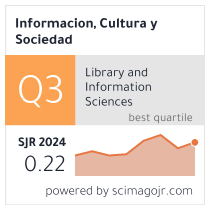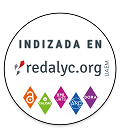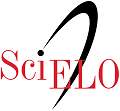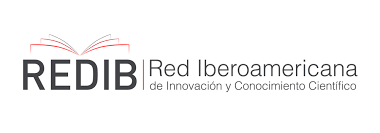Web Accessible Online Public Access Catalogs In The Mercosur
Abstract
User interfaces of web based online public access catalogs (OPACs) of academic, special, public and national libraries in countries belonging to Mercosur (Argentina, Brazil, Paraguay, Uruguay) are studied to provide a diagnosis of the situation of bibliographic description, subject analisis, help messages and bibliographic display. A cuali-cuantitative methodology is adopted and a checklist of systems functions created by Hildreth (1982) is updated and used as data collection tool. The resulting 38 closed questions checklist has allowed to observe the frequency of appearance of the basic functions of four areas: Area I – operational control; Area II, search formulation control and access points; Area III ,output control; and IV, user assistance: information and instruction. The study is carried out on the information obtained from 297 information units. Strata are delimited according to type of software, type of library and country. Chi square, Odds Ratio and multinomial logistic regression are applied to results. This analysis confirms the presence of significative differences according to the delimited strata and shows that most of the OPACs surveyed offer minimum capabilities.Downloads
Authors publishing in this journal acknowledge the conditions below:
- Authors retain the copyright of their work while they transfer the right of the first publishing to the journal, under the Creative Commons Attribution-ShareAlike 4.0 International (CC BY-SA 4.0) Licence, which allows third parties to reproduce them under the condition that express mention is given to the author and to its original publication in the journal.
- Authors may enter into other contractual and independent arrangements for the non-exclusive distribution of the version of the article published in this journal (for instance, it can be published in an institutional repository or in a book). In any case, an express mention should be given to its first publication in the journal.
- It is permitted and encouraged to publish online the articles (for example, on institutional or personal pages).

























